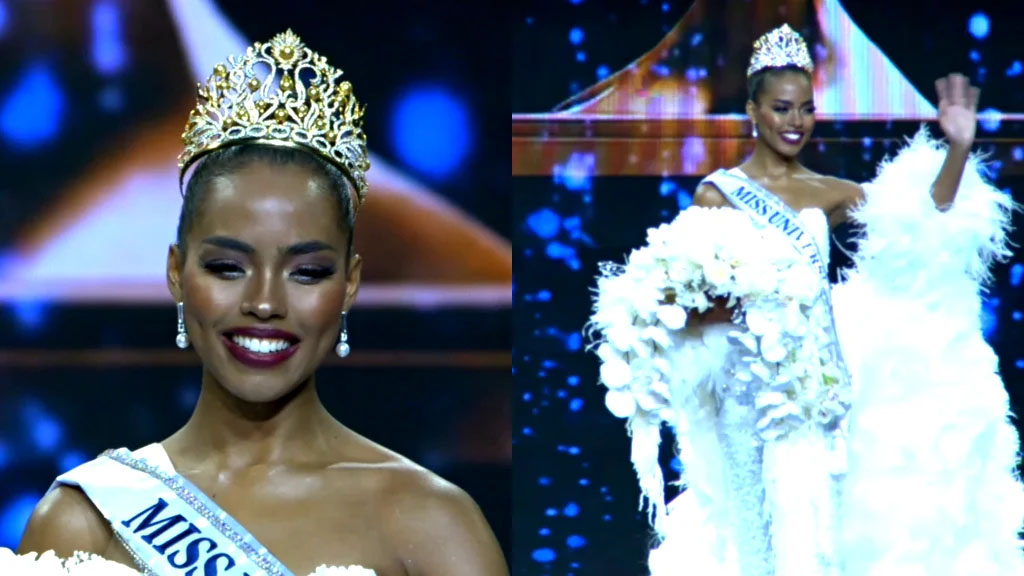
Photo Credit:Empire Phillipines
On Wednesday, Filipino American Chelsea Manalo made history by becoming the first Black woman to be crowned Miss Universe. This landmark achievement not only celebrated her unique heritage but also challenged and expanded traditional beauty ideals long held in the country.
Born to a Filipino mother and an African American father, the 24-year-old's victory was widely celebrated on social media. Many praised her win as a pivotal moment in diversifying the standards of beauty in the Philippines. “Chelsea’s win challenges our ingrained preference for Eurocentric beauty (features) and lighter complexions in our nation,” commented one user on the Miss Universe Philippines' official Instagram post.
Another stated, “Filipino beauty standard shattered into pieces.” Representing Bulacan, a province north of Manila, Manalo emerged victorious among52 contestants from across the archipelago and overseas. The competition, held at the SM Mall of Asia Arena in Pasay, culminated in a poignant moment during the top five segment. Manalo was asked how she would use her beauty and confidence to
empower others.
“As a woman of color, I have always faced challenges in my life. I was told that beauty has standards, actually,” she remarked. She credited her mother for instilling in her the belief to always have faith in oneself and to uphold personal vows. “Because of these, I
am already influencing a lot of women who are facing me right now,” she declared, addressing the audience with confidence.
Manalo’s triumph is part of a broader dialogue about redefining beauty standards in the Philippines, a country where Western ideals have long been prevalent, influenced by itscolonial history. Traditionally, lighter-skinned actors and models dominate major TV shows, movies, and fashion campaigns. Similar to other Asian countries, the Philippines has a significant market for skin lightening treatments and products.
In a candid YouTube video on Empire Philippines, which livestreamed the event, Manalo shared her personal struggles with self-image. “I grew up having insecurities as I was always bullied because of my skin and my hair type,” she revealed, expressing gratitude to her friends and family for helping her “realize that I am beautiful in my own extraordinary way.”
Manalo is now set to represent the Philippines at the Miss Universe pageant in Mexico this September. She aims to bring home the country’s fifth Miss Universe title, following in the footsteps of Gloria Diaz (1969), Margie Moran (1973), Pia Wurtzbach (2015), and
Catriona Gray (2018).
The upcoming Miss Universe 2024 competition will feature contestants from over 100 countries. Notably, this year marks the removal of the upper age limit for contestants, previously set between 18 and 28 years old. The Miss Universe organization has recently faced scrutiny due to controversies involving its parent company, including allegations of mismanagement and a toxic work environment.
Despite these challenges, Manalo's win stands as a beacon of progress and inclusivity, inspiring many to embrace their unique beauty and heritage.

















